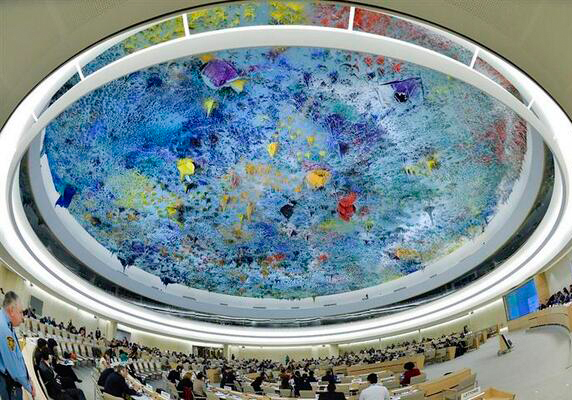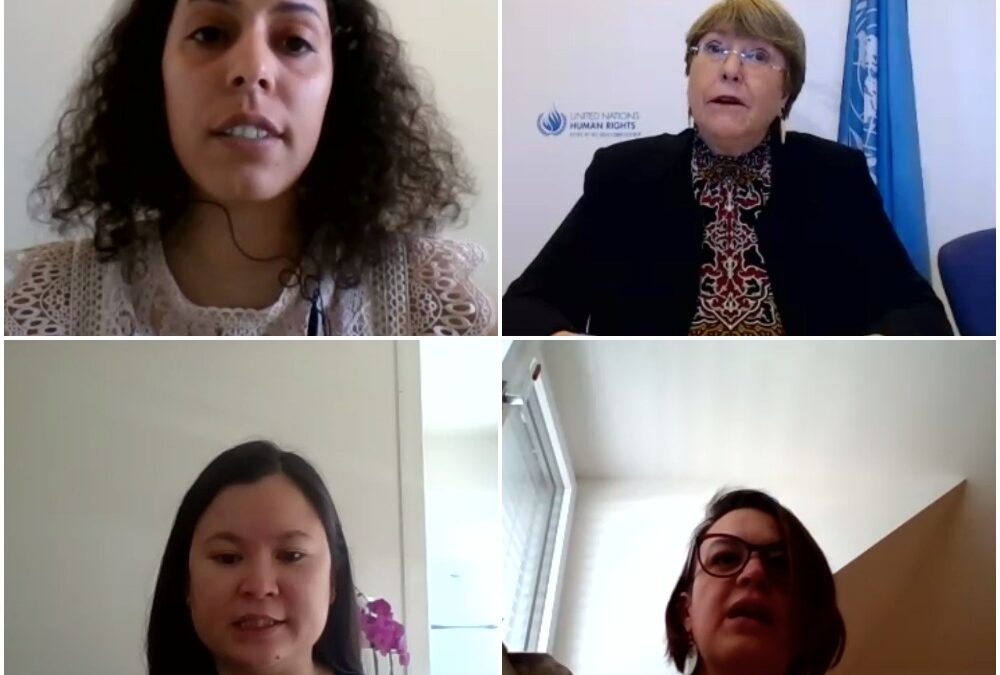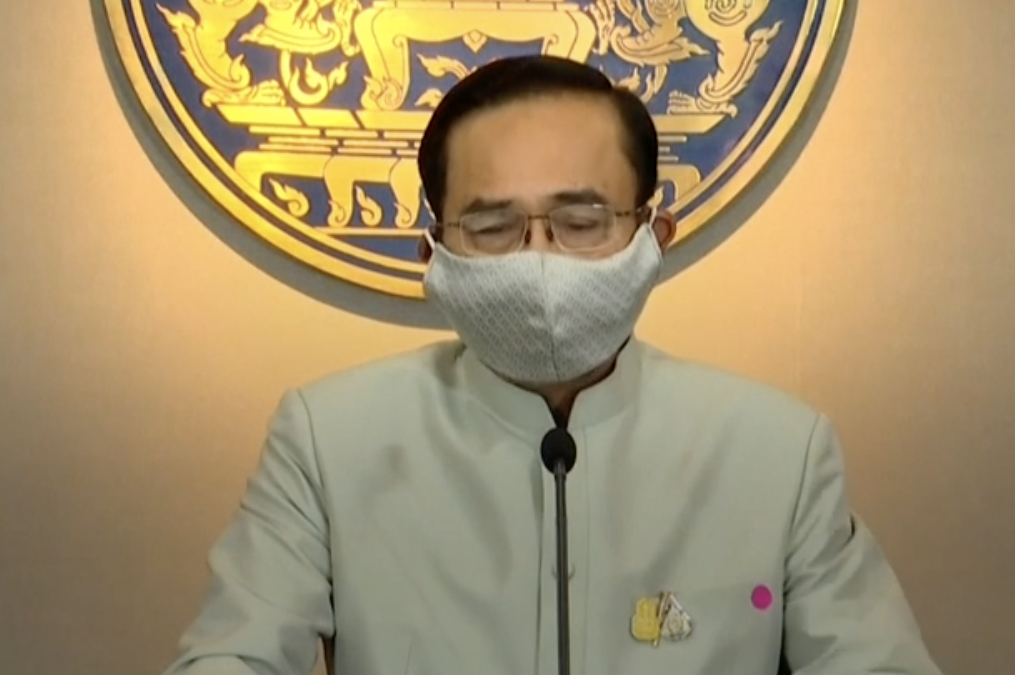
Apr 30, 2020 | Advocacy, Non-legal submissions
The ICJ has joined other NGOs in highlighting the contribution of independent UN human rights experts in ensuring that measures against COVID-19 are consistent with human rights.
The statement, delivered by Amnesty International on behalf of the group of NGOs in an informal online meeting of the UN Human Rights Council, read as follows:
“We thank the Coordination Committee for the update on the work undertaken by the Special Procedures to date to highlight the human rights impacts of the COVID-19 pandemic.
As States undertake extraordinary measures to curb the spread of COVID-19, we recognize the good faith efforts of many States to effectively protect the right to life, the right to health and other human rights as well as the well-being of their populations, and to curb the spread of COVID-19. States must ensure that quality health services and goods necessary for prevention and care are accessible, available and affordable for all. Health workers and other front-line workers should be provided with adequate protective equipment, information, training and psycho-social support. Key health services, including sexual and reproductive health information and services, should be confirmed as essential services and their provision guaranteed.
We also recognize that in other contexts, States have used emergency powers to enact repressive measures that do not comply with the principles of legality, proportionality and necessity and that may have the effect or intention of suppressing criticism and minimizing dissent.
In this regard, we take heart at the Special Procedures statement that “[t]he COVID-19 crisis cannot be solved with public health and emergency measures only; all other human rights must be addressed too“.[1] We particularly value the vast and interconnected responses by the Special Procedures highlighting the wide-ranging effects of the pandemic itself, as well as of measures taken by states in the name of responding to the global health crisis.
The Special Procedures have addressed the impact on economic, social and cultural rights, such as the rights to health, housing, water and sanitation, food, work, social security, education, healthy environment and adequate standard of living, and to equality and non-discrimination as cross-cutting rights.
The Special Procedures have also highlighted the increased risks of people with underlying health conditions, older people, people who are homeless or in inadequate housing, people living in poverty, persons with disabilities, LGBTI people, children, migrants, refugees and asylum-seekers, people living in refugee or IDP camps, and people deprived of liberty. They have also highlighted the effects on women and girls, calling for responses to consider factors such as their “sex, gender, age, disability, ethnic origin, and immigration or residence status among others“.[2]
We also welcome the various tools that have been developed by some mandate holders, such as the COVID-19 Freedom Tracker, the Dispatches, video messages and guidelines in addition to the vast number of press releases.[3] Making these tools readily accessible to all stakeholders is critical, as is considering ways to receive feedback and share learnings about their application. We encourage the Special Procedures to continue to deepen their analyses of state responses, including through reports to the Human Rights Council and the General Assembly, and to offer guidance, through the tools mentioned, to states on how to respond to the crisis in a human rights compliant manner.
Last but not least, we urge UN member states to cooperate fully with the Special Procedures. While country visits are suspended for the time being, this should not be used as an excuse not to co-operate. We call on states to respond in a timely manner to communications from the Special Procedures and to seek technical and expert advice from relevant mandate holders in relation to draft legislation to ensure that these are in line with states’ obligations to respect, protect and fulfil all human rights.”
The statement was joined by the following organisations:
- Amnesty International
- Asian Forum for Human Rights and Development (FORUM-ASIA)
- Centro de Estudios Legales y Sociales (CELS)
- CIVICUS: World Alliance for Citizen Participation
- Conectas Direitos Humanos
- DefendDefenders (East and Horn of Africa Human Rights Defenders Project)
- Human Rights Law Centre
- Human Rights Watch
- ILGA World – The International Lesbian, Gay, Bisexual, Trans and Intersex Association (International Lesbian and Gay Association)
- International Commission of Jurists
- International Service for Human Rights
[1] https://www.ohchr.org/EN/NewsEvents/Pages/DisplayNews.aspx?NewsID=25746&LangID=E
[2] https://www.ohchr.org/EN/HRBodies/SP/Pages/News.aspx
[3] https://www.ohchr.org/EN/HRBodies/SP/Pages/COVID-19-and-Special-Procedures.aspx

Apr 9, 2020 | Advocacy, Non-legal submissions
The ICJ has joined other NGOs highlighting key human rights issues in the COVID-19 pandemic, at a virtual meeting of the UN Human Rights Council.
In the informal conversation, exceptionally organised by video-conference, the High Commissioner for Human Rights presented a statement, as did the President of the Council and a number of States, followed by several statements by NGOs.
The ICJ joined statements delivered by CIVICUS (on civil and political rights), ISHR (on the UN system response), and FORUM-Asia (on economic, social and cultural rights), on behalf of a large number of NGOs from around the world.
The statements focussed on, among other things:
- the obligations of States individually and collectively to mobilize the maximum available resources to respond to the pandemic and protect those at risk, including by respecting, protecting and fulfilling economic, social and cultural rights;
- the need to guard against abuse of emergency powers and undue restrictions on fundamental rights, including non-discrimination, freedom of expression and right to access information, the right to privacy, rights of persons deprived of liberty, and taking into account the situation of particularly-at-risk groups;
- the role of the Human Rights Council, Special Procedures and Secretary General to monitor, report on, and respond to human rights aspects of the pandemic and States’ responses, and ensuring that civil society continues to be able to participate in all relevant UN and other processes.
The full statements may be downloaded in PDF format here:
Civil and Political Rights: UN-JointStatement-COVID19CPR-2020-final
Economic, Social and Cultural Rights: UN-JointStatement-COVID19ESCR-2020-final
United Nations Mechanisms: UN-JointStatement-COVID19UN-2020-final
Abbreviated versions were delivered in the dialogue, due to the limited time available.
In extensive and detailed closing remarks, the High Commissioner responded to many of the questions and observations made during the discussion, concluding, on the topic of access to justice in times of crisis, as follows (unofficial transcription):
“Courts become more important than ever to safeguard rights in times when major decisions with broad impact are being taken and implemented at great speed. In these circumstances, we have already seen the real risk for abuse of power, legal over-generalization and mistake. The courts must remain available to address these issues, if necessary of course by modifying their working methods. We have seen courts in many countries taking measures to ensure they remain accessible while protecting their staff and clients.”
A video recording of the event can be viewed here.
The High Commissioner’s specific remarks on access to justice can be accessed directly here.

Mar 24, 2020 | News
As the Thai government moves to exercise its power under the Emergency Decree on Public Administration in Emergency Situation B.E. 2548 (2005) (“Emergency Decree”) to combat the COVID-19 outbreak, the ICJ reiterates its recommendations made since 2005 regarding lawful and proportionate exercise of this power in a manner consistent with Thailand’s obligations under international law.
The ICJ urges the Thai Government to take these recommendations into consideration when imposing any measures to address the COVID-19 outbreak:
- A state of emergency used to justify any permissible derogation from obligations under international human rights law must meet the standard that an emergency “threatens the life of the nation”, as set out in the International Covenant on Civil and Political Rights. Parliament should play an active role in providing oversight.
- Any limitations on or derogation from the exercise of internationally guaranteed rights should be limited in duration, strictly necessary, and proportionate to the specific threat posed.
- Derogating measures may only limit the scope of other rights to the extent strictly necessary to meet a threat to the life of the nation, but they may not suspend the applicability of any right in its entirety.
- This necessity must be continually re-assessed so that the derogating measures apply for the shortest time possible. Certain human rights, including the right to life, the right to life, the freedom from torture or ill-treatment, the essential elements of arbitrary deprivation of liberty and to a fair trial and the right to an effective remedy can never be restricted even in a state of emergency.
- It should be clearly stated which officials have responsibility for implementing the provisions of the emergency law and what their powers and responsibilities are.
- All officials responsible for implementing the law should be explicitly stated to be under the authority of the ordinary law of Thailand, with no immunity for any criminal acts carried out in the exercise of their responsibilities.
- The decisions and actions of officials exercising powers under the emergency law should be subject to review by the courts.
Download the statement in Thai here.







